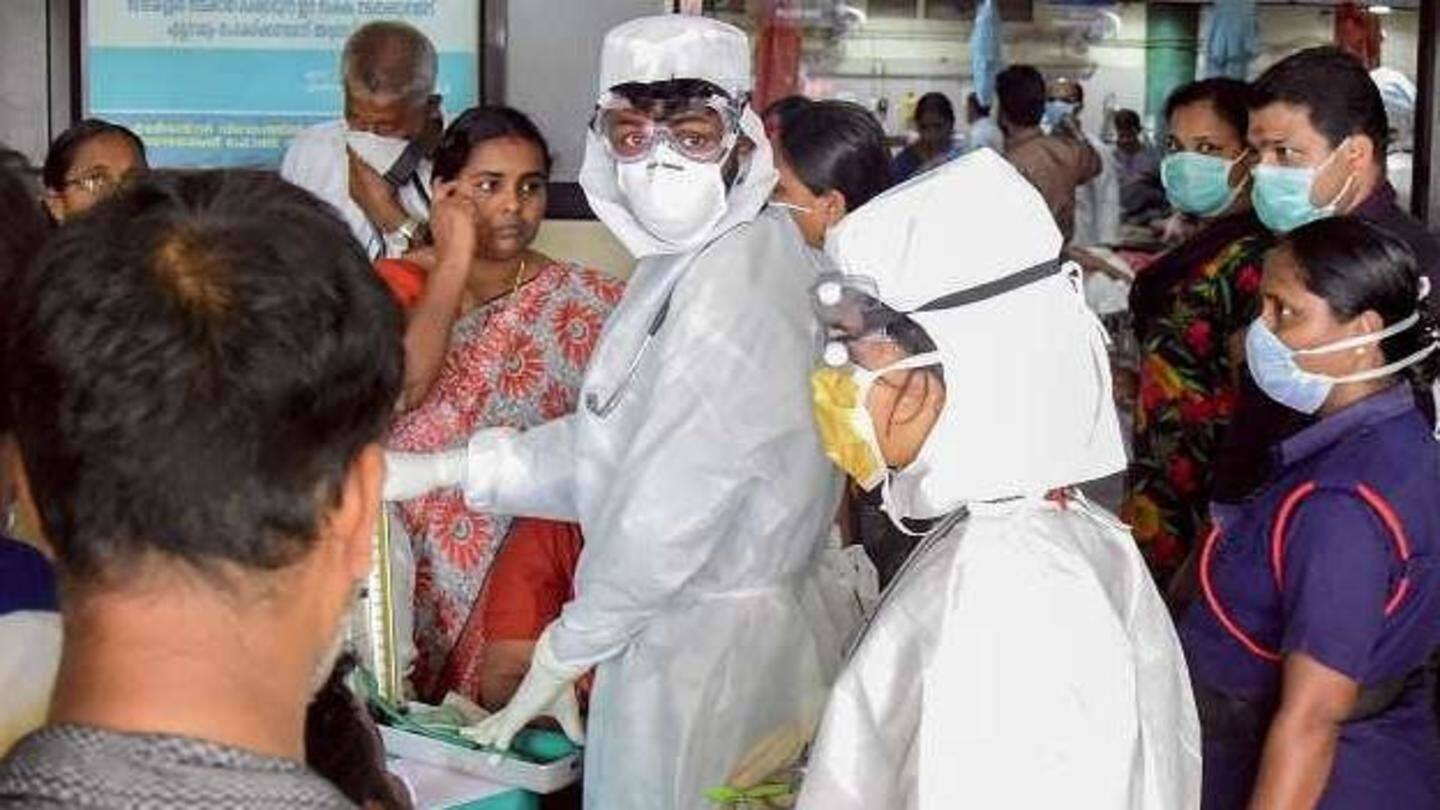
Nipah virus: When relatives refused, doctor performed patients' funeral rites
What's the story
Going beyond the call of duty, Dr. RS Gopakumar, Health Officer of Kozhikode corporation, performed the role of a pall-bearer to conduct the last rites of some of those who lost their lives to the deadly Nipah virus. With close relatives staying away due to fear of contracting Nipah, Gopakumar took the responsibility of handling 12 bodies. Here's more.
Last Rites
Saddened by the state of affairs
"I was saddened that during his (17-year-old patient) last journey, there was none of his dear ones to perform last rites," Gopakumar said. "I did not have to think twice and I decided to perform all Hindu rites for the boy as I wanted him to go on his final journey with all the dignity. It was my duty," he added
Details
Mother of deceased kept in isolation granted permission to Gopakumar
Gopakumar performed the last rites of the 17-year-old boy as his mother who gave him the permission, was in the isolation ward and could not even see her son for one last time. He conducted the final rites of a 53-year-old man too whose relatives refused to participate in the funeral. He took one last journey assisting the husband of a 19-year-old woman.
Information
Woman who allegedly consumed poison was suspected of Nipah
The 19-year-old woman, who had allegedly consumed poison, had been brought to a hospital in Kozhikode from Karnataka when some persons who were later found to be positive for Nipah, were treated near her bed. However, the woman's samples were found to be negative later.
Handling infected bodies
Secretion, excretion from deceased person equal to living infected person
Standing operating procedures laid down by the experts of NCDC were followed for handling Nipah affected bodies during the cremation and burial. Secretion and excretion from a deceased person are considered equally infectious like that of a living infected person. The bodies should not be sprayed, washed or embalmed and personnel handling remains have to wear protective equipment like gloves, gowns and N95 masks.
Procedure
Ebola protocol was followed for the burial
A 10-feet pit was dug and 5 kg of bleaching powder was spread inside the pit. The body was packed in an air-tight plastic double body bag and then lowered into the pit. Dr. Reshma Sahay, Scientist from the National Virology Institute, Pune was present as she had handled Ebola cases earlier. "We followed Ebola protocol for the burial," Dr. Gopakumar said.
Sabith Moosa case
First's victim's family contracting Nipah suspected due to performing rites
Gopakumar said he had overseen the funeral of 61 year-old Moosa, whose family including his two sons and brother's wife had also fallen prey to the deadly Nipah virus. It is suspected that during the ritual of bathing of Mohammed Sabith's body, the first victim, Moosa (Sabith's father), and his younger son might have contracted the virus, Gopakaumar said.
Information
Even Kozhikode crematorium refused to perform last rites
There were situations when the staff in Kozhikode crematorium refused to perform the last rites of some Nipah victims due to fear. People from Ivor madom, who conduct funeral rites on the banks of Bharatha puzha, had to be called to do the final rites.